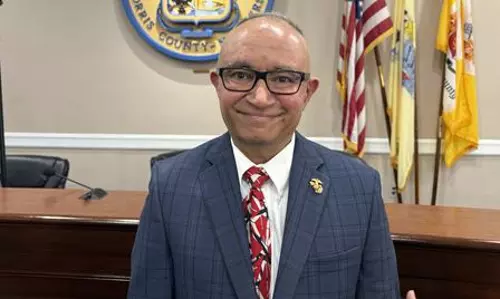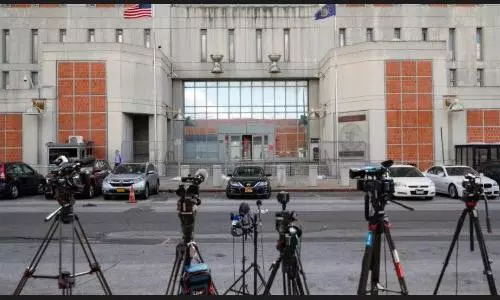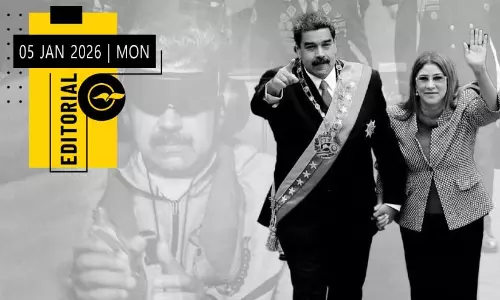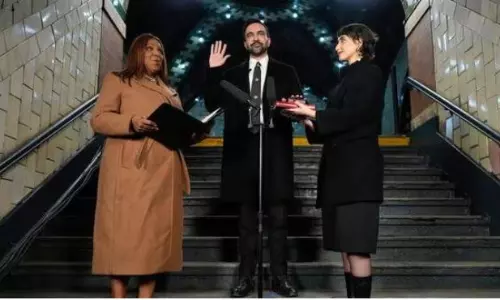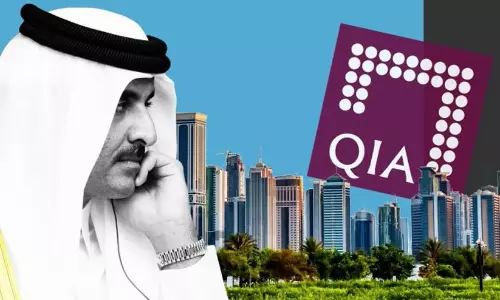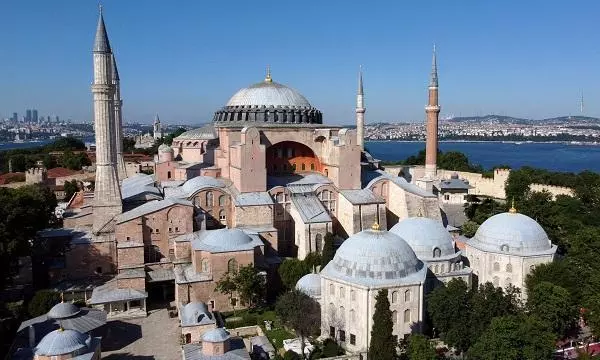
The changing Hagia Sophia beside the changing politics of Turkey
text_fieldsHagia Sophia is becoming again a religious and politically controversial monument because of the Council of State's (Turkey's highest administrative court) decision on 11th July 2020 to cancel the act of 1934 through which Mustafa Kemal Ataturk had converted the mosque into a museum; with the new decision it is now open for Muslims for prayers. By the time the judgement came, Erdogan's Parliament passed the law and declared that the masjid will be opened for public starting by the Jumuah prayer July 24 onwards. Even after criticism from European countries and its conversion after 86 years, Hagia Sophia from its first day has stood tall as a symbol of power and politics. Along with its beauty of construction and being the symbol of power, the history of Hagia Sophia is replete with the stories of changing civilization.
Religious and politically significant history
Hagia Sophia, one of the wonders of the world due to its architectural beauty was built between 532 and 537 AD. It was built in Constantinople (present day Istanbul) as a symbol of glory and power of Byzantine Empire to be a church on the instructions of Emperor Justinian I, with the architectural brilliance of Isidhore of Miletus and Anthemius of Tralles. It has been found in history that even hundred years before this, there stood a church which continuously got destroyed as a result of wars and riots for the domination of Roman Empire. This burnt Church was then reconstructed by Justin I into the symbol of power and glory of Byzantine Empire. The coronation of Byzantine rulers and the transformation of power was held in this Church. As it was the global headquarters of Orthodox Church and the Roman Emperors used to order royal decrees in its courtyards, Hagia Sophia has both religious and political significance.
Along with its religious sanctity, architectural beauty and symbol of glory and power of Byzantine Empire, the Hagia Sophia stands tall in the shores of Bosphorus, which separates Asia and Europe. When Sultan Muhammad Al Fateh defeated the Roman Empire and annexed Constantinople to the Ottoman Caliphate, he decided to take over Hagia Sophia. There is historical evidence that shows the conversations between Sultan Muhammad and the church president patriarchy before the conversion of Hagia Sophia into a masjid in 1453. There are documents that show the agreements between the church President and Sultan in which the Sultan guarantees the respected positions of Church President and freedom of acts and functions, in return of the ownership of Hagia Sophia. It was also decided that the building be divided into two for performing prayers for Muslims and Christians. There is also evidence to prove that until the Orthodox Church headquarters was shifted in 1600 CE, Christians and Muslims used to perform prayers together. Once the headquarters was shifted, Hagia Sophia was completely turned into a masjid. After World War I, the Ottoman Caliphate collapsed.
In 1923 the political dominance of Turkey fell into the hands of Mustafa kemal Ataturk, an extreme secularist. According to an agreement between Ataturk, Britain and Europe related to the formation of Turkish government, it was decided to convert Hagia Sophia into a museum by 24th November 1934, and was approved by the Parliament. At the time, Europe viewed it as an internal affair of Turkey. Then onwards Hagia Sophia, which was the symbol of the Caliphate turned into a museum in modern secular Turkey.
The beginning of legal battles
From the very beginning, there were people for and against Mustafa Kemal Ataturk's decision. As it was a painful situation for Turkish Muslims, it resulted in religious and political discourses, debates, protests and struggles which have been simmering ever since. Every year on May 29th, festivities were organised to celebrate the defeat of Constantinople in Hagia Sophia's yards and it became a regular ritual. From the time of formation of Arbakan's Milli Nisam party in 1970, the conversion of Hagia Sophia into a museum began to develop into a political issue.
In 2005, an NGO, the Association of Foundations and Service to Historical Artefacts and Environment, began the legal battle. Their petition demanded the revocation of the law issued by the cabinet of ministers in 1934 and suspension of the legal proceedings. As soon as the complaint was received, the Tenth Chamber of the Council of State, which is the apex court of Turkey rejected their petition and judged that there were no legal issues related to the existence of Hagia Sophia as a museum.
In 2016, the apex court along with its Supreme bench of judges considered the repetition of the association and passed the verdict that after completing the court procedures, the rule of 1934 will be cancelled and that after three years it will be opened to public as masjid on the 11th of July. The verdict was given considering the documents that proved Hagia Sophia was the private property of Sultan Muhammad II and his consent to make it a masjid. The cabinet of ministers under the leadership of Erdogan passed a resolution in the Parliament to accept the conversion of Hagia Sophia into a masjid and the decision was declared under the Ministry of Religious Affairs.
The change in the authority and politics of Turkey was again reflected on Hagia Sophia. In fact Hagia Sophia was not converted based on religious considerations but on political ones. Even though it was the land of crusades, all the Christian relics that were found in the sixth century is being protected until today in Hagia Sophia and Istanbul. But the face of Hagia Sophia keeps on changing along with changing political situations. The reason is quite simple. Turkey has seen Hagia Sofia not just as a building, but as a symbol of glory of their civilisation. The changing political situations will definitely change the character of Hagia Sophia, not for destroying it, but to own it and to take care of it. In short, the ownership of Hagia Sophia affirms that the political authority belongs to the present government.
The majority want Hagia Sophia, which was the symbol of the Caliphate to be a masjid, while some wish that it continue to exist as a museum and yet others want it as a historical monument and symbol of Christian-Muslim unity. UNESCO, Russia, America and Greece view new decision of Turkey with concern. The Orthodox Church laments on the new decision and regards it as divisive. But at the time of its conversion now, Erdogan quoted what Europe said in 1934 that "this is an internal matter of Turkey – a law that is passed by its Parliament ".
He also declared that Hagia Sophia will be the pride of Turkey and shall remain a historical monument open for all. The spokesman of the President, Ibraham Kalin added that Turkey will retain the Christian heritage and will also protect the Christian values as have been protected by the predecessors. As for Turkey, this decision can create enough consequences outside the country. As a result, in the issue of Syrian refugee problems and membership with European Union, the gap between Turkey and EU countries is likely to widen. Turkey has concerns that this can also widen the relationship with America and Russia at the same time. This can also result in a weakening of effectiveness of decisions taken with Russia on Syrian issue, if the Orthodox Church pressurizes them. Hence the issue of Hagia Sophia has the potential to develop into an issue both religious and political.
As a response to Greece, Erdogan is seen to have enquired on the number of mosques there and whether Greece would be willing to return them to Turkey. This is on the basis of the fact that during the medieval period numerous mosques in Europe were converted into churches. But the interventions in Arab regions by Turkey also irk the countries with stakes there. And that may throw them an opportunity to jump into the fray too.
There also exists a concern whether this would create a 'crusade-mentality' around Middle East and Europe. Muslim organizations in Europe are criticising this decision in general. Therefore, the consequences of Erdogan's decision within and outsidethe country, is a matter to be waited for and watched.
(The Author is a research student in Istanbul Sabahattin Zaim University)




